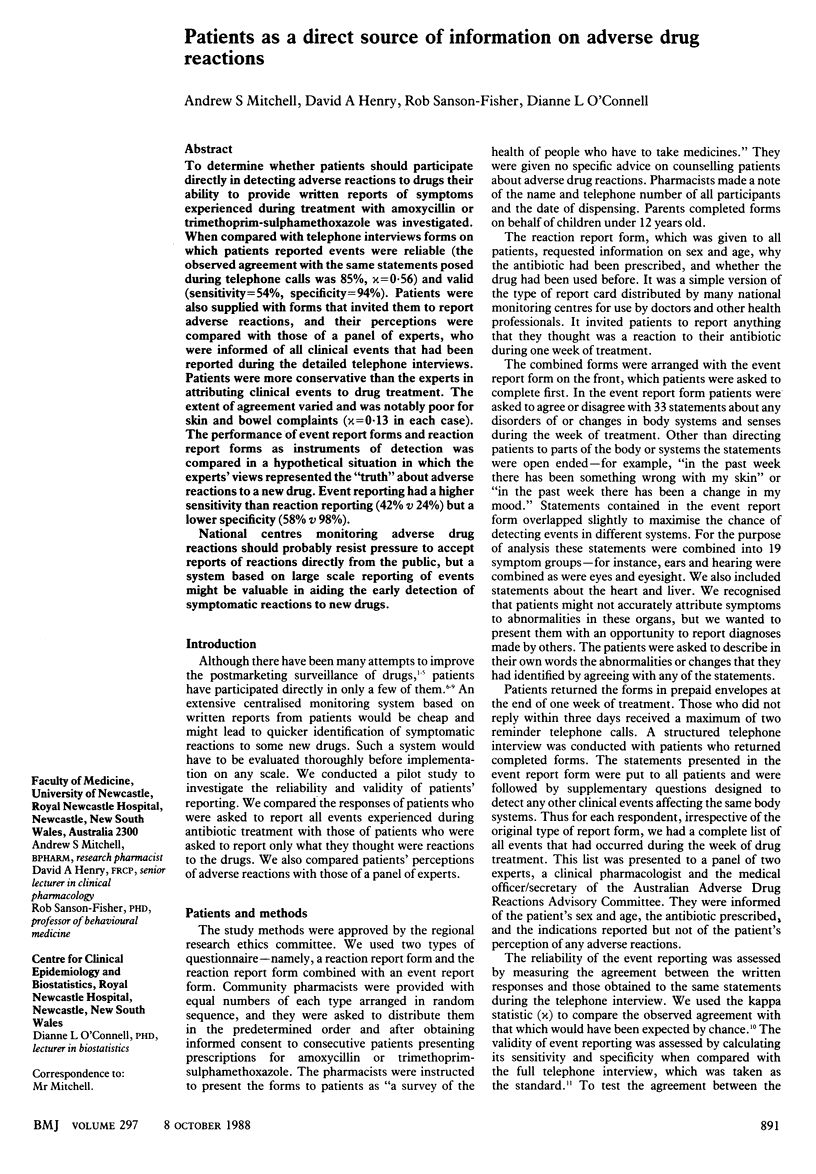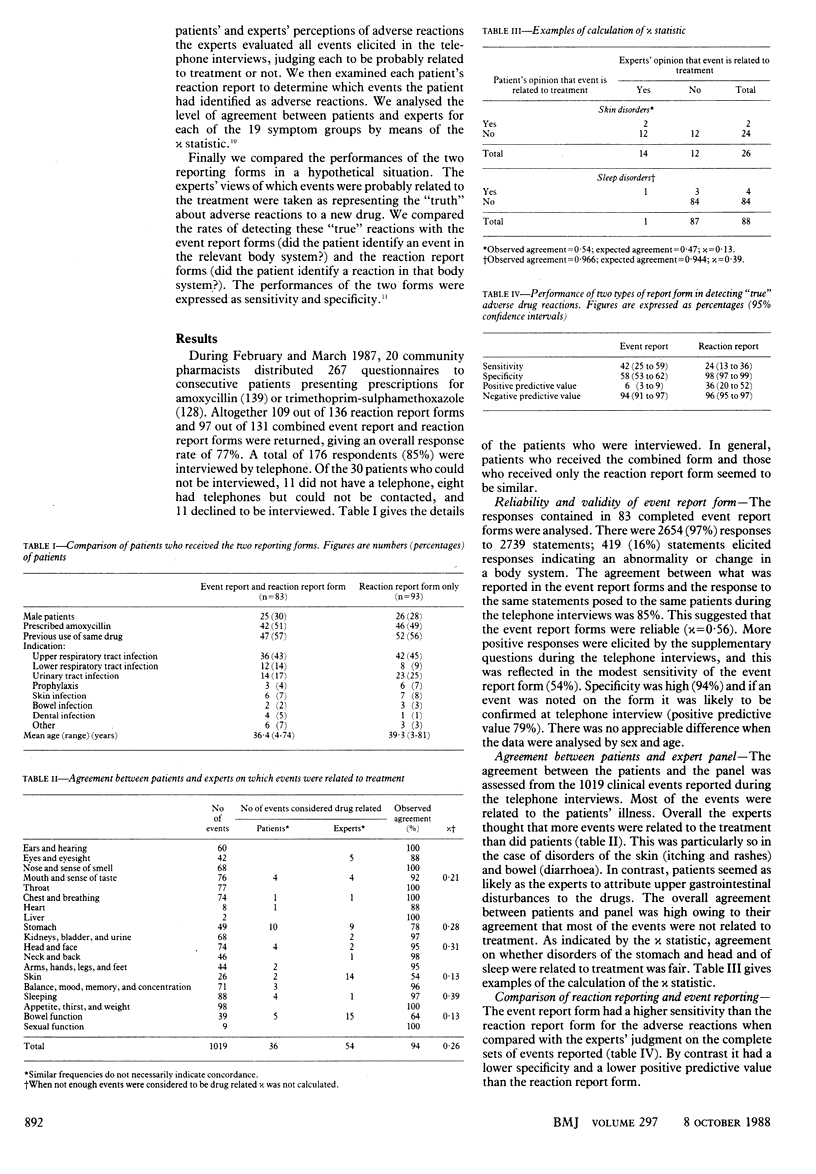Abstract
To determine whether patients should participate directly in detecting adverse reactions to drugs their ability to provide written reports of symptoms experienced during treatment with amoxycillin or trimethoprim-sulphamethoxazole was investigated. When compared with telephone interviews forms on which patients reported events were reliable (the observed agreement with the same statements posed during telephone calls was 85%, kappa = 0.56) and valid (sensitivity = 54%, specificity = 94%). Patients were also supplied with forms that invited them to report adverse reactions, and their perceptions were compared with those of a panel of experts, who were informed of all clinical events that had been reported during the detailed telephone interviews. Patients were more conservative than the experts in attributing clinical events to drug treatment. The extent of agreement varied and was notably poor for skin and bowel complaints (kappa = 0.13 in each case). The performance of event report forms and reaction report forms as instruments of detection was compared in a hypothetical situation in which the experts' views represented the "truth" about adverse reactions to a new drug. Event reporting had a higher sensitivity than reaction reporting (42% v 24%) but a lower specificity (58% v 98%). National centres monitoring adverse drug reactions should probably resist pressure to accept reports of reactions directly from the public, but a system based on large scale reporting of events might be valuable in aiding the early detection of symptomatic reactions to new drugs.
Full text
PDF


Selected References
These references are in PubMed. This may not be the complete list of references from this article.
- Borden E. K., Lee J. G. A methodologic study of post-marketing drug evaluation using a pharmacy-based approach. J Chronic Dis. 1982;35(10):803–816. doi: 10.1016/0021-9681(82)90092-3. [DOI] [PubMed] [Google Scholar]
- Colin-Jones D. G., Langman M. J., Lawson D. H., Vessey M. P. Postmarketing surveillance of the safety of cimetidine: mortality during second, third, and fourth years of follow up. Br Med J (Clin Res Ed) 1985 Oct 19;291(6502):1084–1088. doi: 10.1136/bmj.291.6502.1084. [DOI] [PMC free article] [PubMed] [Google Scholar]
- Crombie I. K., Brown S. V., Hamley J. G. Postmarketing drug surveillance by record linkage in Tayside. J Epidemiol Community Health. 1984 Sep;38(3):226–231. doi: 10.1136/jech.38.3.226. [DOI] [PMC free article] [PubMed] [Google Scholar]
- Feinstein A. R. Clinical biostatistics XXXI. On the sensitivity, specificity, and discrimination of diagnostic tests. Clin Pharmacol Ther. 1975 Jan;17(1):104–116. doi: 10.1002/cpt1975171104. [DOI] [PubMed] [Google Scholar]
- Fisher S., Bryant S. G., Solovitz B. L., Kluge R. M. Patient-initiated postmarketing surveillance: a validation study. J Clin Pharmacol. 1987 Nov;27(11):843–854. doi: 10.1002/j.1552-4604.1987.tb05578.x. [DOI] [PubMed] [Google Scholar]
- Inman W. H. Postmarketing surveillance of adverse drug reactions in general practice. II: Prescription-event monitoring at the University of Southampton. Br Med J (Clin Res Ed) 1981 Apr 11;282(6271):1216–1217. doi: 10.1136/bmj.282.6271.1216. [DOI] [PMC free article] [PubMed] [Google Scholar]
- Jick H., Madsen S., Nudelman P. M., Perera D. R., Stergachis A. Postmarketing follow-up at Group Health Cooperative of Puget Sound. Pharmacotherapy. 1984 Mar-Apr;4(2):99–100. doi: 10.1002/j.1875-9114.1984.tb03328.x. [DOI] [PubMed] [Google Scholar]
- Strom B. L., Carson J. L., Morse M. L., LeRoy A. A. The computerized on-line Medicaid pharmaceutical analysis and surveillance system: a new resource for postmarketing drug surveillance. Clin Pharmacol Ther. 1985 Oct;38(4):359–364. doi: 10.1038/clpt.1985.188. [DOI] [PubMed] [Google Scholar]



